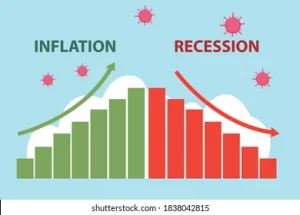
By David Akinmola
The vibrant hues of the Nigerian Stock Exchange (NGX), usually bustling with the energetic flow of investment, saw a sudden dimming in April. Foreign portfolio inflows, the lifeblood that often invigorates emerging markets, experienced a dramatic plunge, plummeting by a staggering 92.39%.
This sharp downturn paints a picture of international investors pulling back, their enthusiasm dampened by the prevailing winds of global economic uncertainty.
Just a month prior, in March, the NGX had enjoyed a significant boost, largely due to substantial “block trades” that had temporarily inflated foreign participation.
However, April revealed a starkly different scenario. The absence of these large transactions laid bare a cautious sentiment among foreign investors. Inflows dwindled to a mere billion, a stark contrast to the billion recorded in March. Consequently, total foreign transactions also took a nosedive, falling by 90.99% from billion in March to billion in April.
This reticence from international players is widely attributed to the current climate of global economic ambiguity. Shifting macroeconomic conditions in developed economies and geopolitical headwinds have triggered a wave of risk aversion. Investors are reassessing their exposure to emerging markets like Nigeria, leading to a significant re-evaluation of their portfolios.
For instance, the recent announcement by U.S. President Donald Trump regarding sweeping tariffs, including a proposed 14% levy on Nigerian exports, has further exacerbated these concerns, disrupting potential trade flows and injecting considerable uncertainty into the global economic landscape.
Despite this exodus of foreign capital, the Nigerian Exchange has found a sturdy anchor in its domestic investors. In April, local players accounted for a dominant 87.00% of the total transaction value, amounting to billion, a marginal increase from the billion recorded in March.
This resilience in domestic participation, driven primarily by institutional investors, underscores a degree of confidence in the local market, potentially buoyed by relative macroeconomic stability and encouraging corporate earnings.
While the year-to-date figures still reveal a net outflow of foreign investment ( billion in inflows versus billion in outflows between January and April), the sustained activity of domestic investors provides a crucial buffer against the volatility introduced by global factors.
Looking ahead, as the global economic environment continues to navigate uncertainty, the Nigerian stock market may increasingly rely on the strength and participation of its domestic investors to maintain momentum. The sharp drop in foreign inflows in April serves as a potent reminder of the interconnectedness of global finance and how international events can cast a long shadow, even on seemingly localized markets.
Key Takeaways from April 2025:
- Foreign portfolio inflows to the Nigerian stock market tumbled by 92.39%.
- Total foreign transactions decreased by 90.99%.
- Domestic investors accounted for 87.00% of the total transaction value.
- The decline in foreign participation is largely attributed to global economic uncertainty and the absence of the block trades seen in March.
- Despite the foreign capital retreat, domestic investor confidence remained relatively stable.
This narrative highlights the sensitivity of emerging markets to global economic shifts and the increasing importance of domestic investors in sustaining the Nigerian stock market’s activity.






